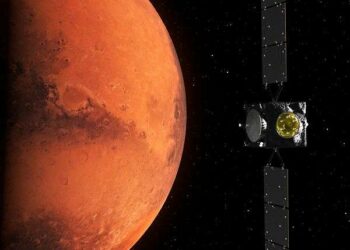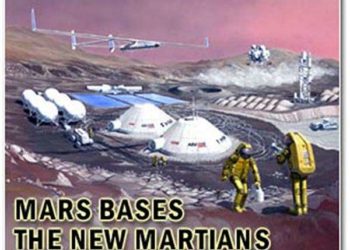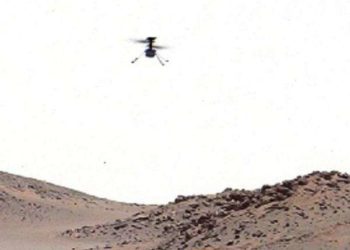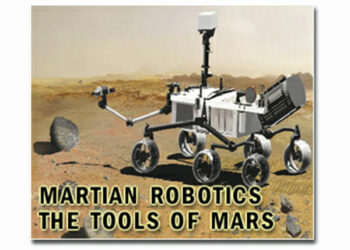It took a crop of potatoes to keep Matt Damon alive on the red planet in The Martian. And in future, real life astronauts on the Moon and Mars will have to be gardeners, farmers and expert recyclers as well as explorers. Do you have promising ideas that might help them to get by in space on next to no resources?
While human settlements on the Moon and Mars are still to come – along with a planned Mars Transit habitat – the fundamentals of living in space are already being clear. To make such plans sustainable over the long term, settlers will have to recycle their air, water and nutrients as much as possible, to minimise their reliance on long, costly supply lines back to their distant home planet.
So ESA and the European Innovation Council – the new body guiding the commercialisation of high-risk, high-impact technologies in Europe – are teaming up to crowd source ideas for implementing ‘circular economy’ technologies and sustainable processes in space.
Reuse and recycling in space
The aim is to seek out concepts targeting the reuse and recycling of water, food, oxygen, nitrogen and other scarce resources from apparent waste material. And further to their use in space, these solutions should also have wider uses on Earth, creating synergies with terrestrial moves towards a circular economy.
The underlying idea is not new. The International Space Station already recycles all the water it can, including crew urine, sweat, moisture from wet towels, even the humidity from astronauts’ breathing.
And for more than three decades now the ESA-led Micro-Ecological Life Support Alternative, MELiSSA Foundation has investigated the designing ‘regenerative’ or closed loop life support systems for crewed missions into deep space.
On Earth we get all the oxygen, water and food we need from Earth’s ecosystem. Future explorers can’t take all of that ecosystem into space with them, but perhaps they can reproduce some key elements.
The 11-nation MELiSSA effort has established a ‘pilot plant’ in Barcelona of interlinked airtight compartments based on aquatic terrestrial ecosystems.
This includes a bioreactor containing ‘nitrifying’ bacteria and an algae-based photo-bioreactor, which have succeeded in keeping crews of rats alive and comfortable for almost six months at a time. The bacteria transform the urine to feed the algae while the algae take the carbon dioxide exhaled by the rats and convert it into fresh oxygen.
The wider MELiSSA Foundation has resulted so far in hundreds of academic papers, patents and terrestrial spin-offs in areas ranging from food preparation to water purification and microbial safety – along with numerous experiments flown aboard the International Space Station.
Send us your ideas
Guided in part by MELiSSA experience, ESA and the EIC have selected four dedicated challenges:
+ Circular System Design Methodology – relating to the different approaches and design guidelines that can be used to create, simulate and predict robust circular systems
+ Circular Waste Management – relating to specific processes for the recycling and reuse of wastes
+ Circular Urine Management – including urine recovery/recycling systems and urine to food processes
+ Circular Food Management – including biomass production processing/preparation/optimisation, new food sources, food production, recipes, processes and safety.
Within these areas, ideas are being sought for critical technology building blocks, policy, legislation and investment frameworks. Ideas will be evaluated, and the winning contributors will be invited to a workshop, which aims to produce joint strategy proposal for the coming decade.
Wane to get involved? More details on the submission process and challenges are provided in the letter of invitation and proposal template. Anyone interested can also watch a recorded webinar and write direct to [email protected] to deal with any questions and clarifications.
The current deadline for submissions has been extended until 1 March 2022.
Related Links
Space Engineering and Technology at ESA
Space Tourism, Space Transport and Space Exploration News
|
We need your help. The SpaceDaily news network continues to grow but revenues have never been harder to maintain. With the rise of Ad Blockers, and Facebook – our traditional revenue sources via quality network advertising continues to decline. And unlike so many other news sites, we don’t have a paywall – with those annoying usernames and passwords. Our news coverage takes time and effort to publish 365 days a year. If you find our news sites informative and useful then please consider becoming a regular supporter or for now make a one off contribution. |
||
|
SpaceDaily Monthly Supporter $5+ Billed Monthly |
SpaceDaily Contributor $5 Billed Once credit card or paypal |
|
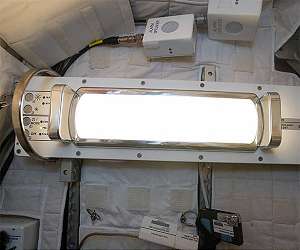
![]()
NASA Research Boosts LED Lamps for Home and Garden
Greenbelt MD (SPX) Dec 30, 2021
NASA’s exploration requires research into how light affects both humans and plants: John Glenn’s first trip into Earth orbit lasted just under five hours, but today, astronauts regularly stay six months or longer on the International Space Station. Experiencing over a dozen sunrises and sunsets each day means an astronaut’s biological clock tends to be in the wrong time zone. And for longer deep space missions, NASA needs to develop ways to grow food without relying on sunlight.
NASA’s lighting re … read more




